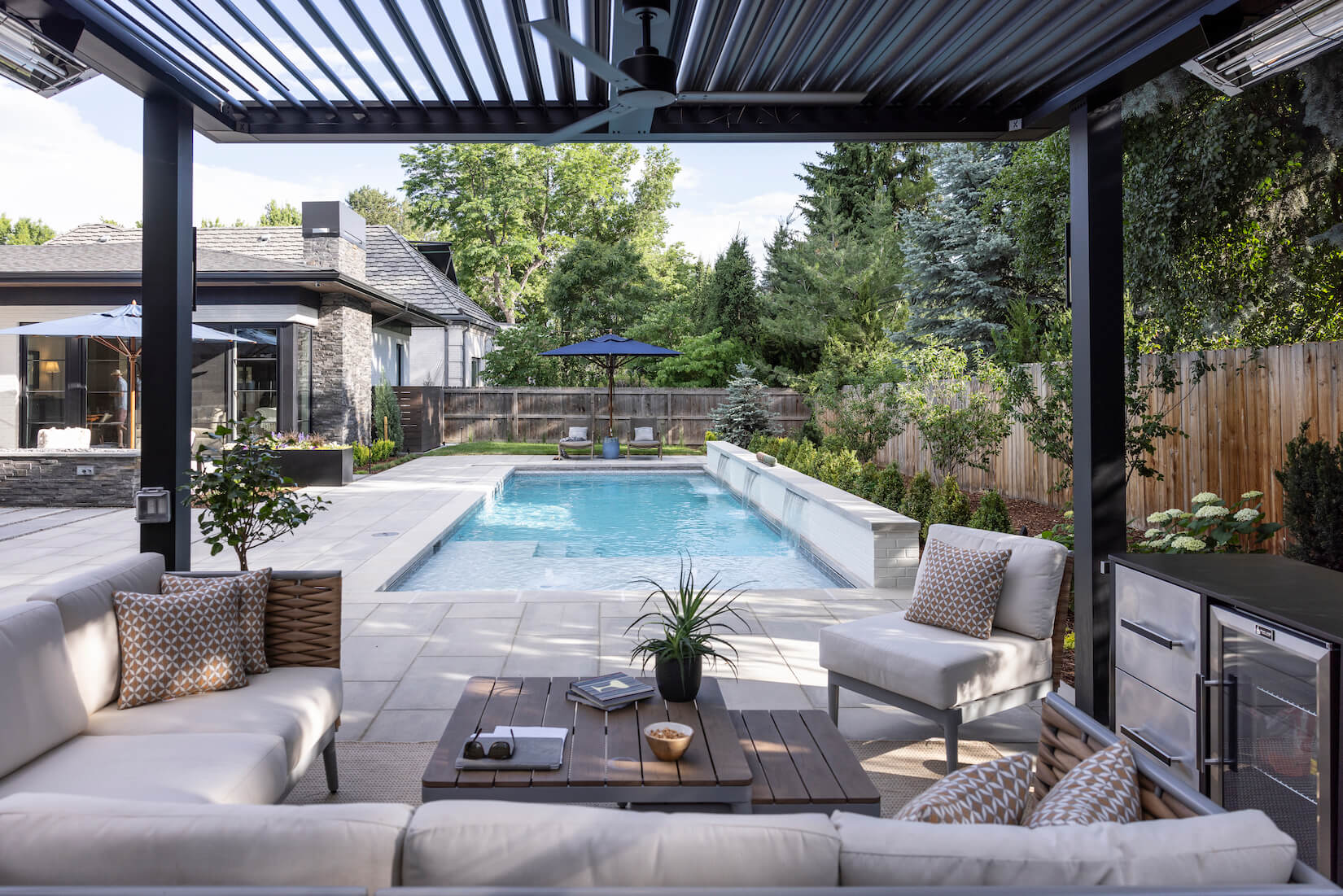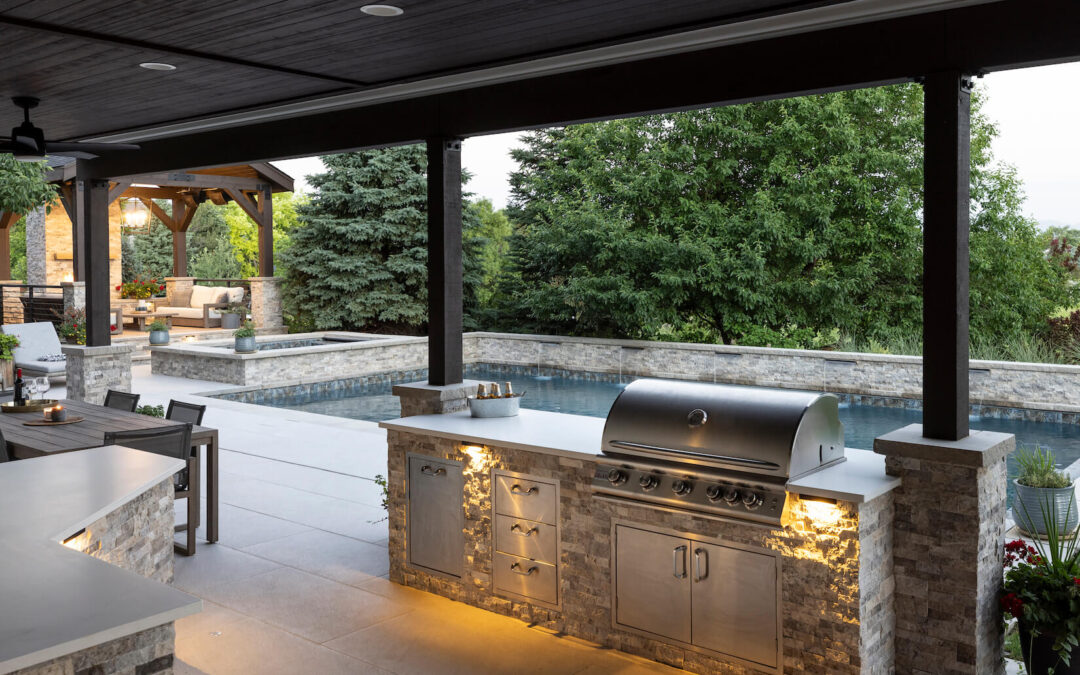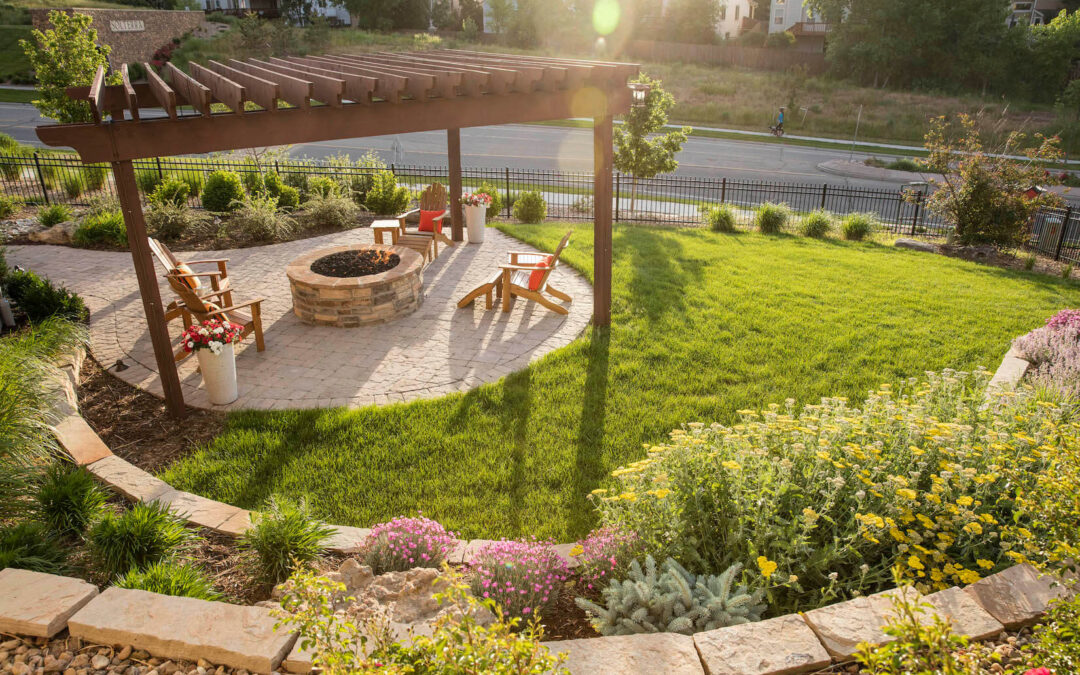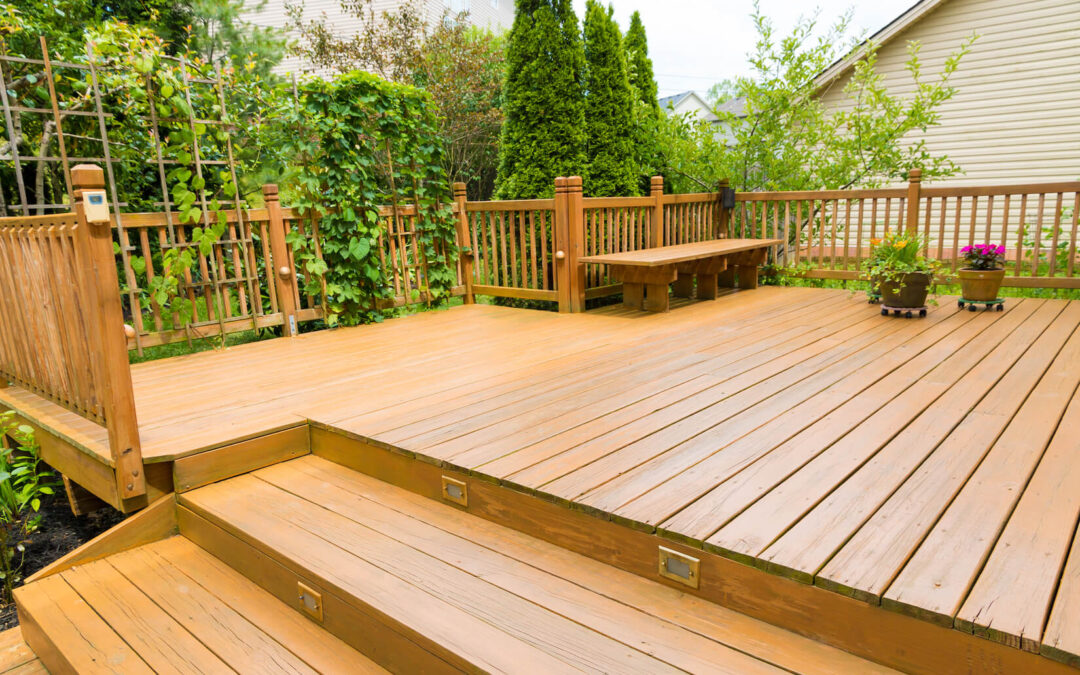There’s nothing like diving into your backyard pool on a hot Colorado day. Whether in Denver’s city limits or tucked into the foothills, a private pool is the ultimate at-home escape — perfect for entertaining, relaxing, and boosting property value. But before the first scoop of dirt is moved, you’ll need to wade through a little red tape and apply for and obtain the necessary permits.
Understanding pool permitting isn’t just about checking a box — it’s about protecting your investment, ensuring safety, and avoiding costly setbacks.
This guide’ll explain which pools (including the popular plunge pool) require a permit, when they’re needed in Colorado, and how the process works.
What Is a Pool Permit and Why Is It Necessary in Colorado?
A pool permit is legal approval from your local building authority to install a swimming pool on your property. In Colorado, permits are required for most permanent pool installations. While there are some random exceptions here and there in various jurisdictions in Colorado, any pool construction involving excavation, plumbing, and electrical systems will need a permit.
So why do permits matter?
Permits ensure your pool meets state and local safety codes, is appropriately installed on your property, and is built using approved methods and materials. They also trigger necessary inspections, like electrical bonding and barrier fencing, that protect your household and future homeowners.
Don’t skip this step. Homeowners who install a pool without permits risk fines, forced removal, loss of insurance coverage, and issues when trying to sell their home.
Permits aren’t just about red tape, they’re about doing it right the first time. Permits aren’t there to spoil the fun of installing a pool. Permits protect the environment and maintain the safety and aesthetic aspects of installing a pool.
When Do You Need a Permit for a Pool in Colorado?
In Colorado, the need for a permit largely depends on the pool type you plan to install. There are a few different types of pools. For one, you won’t need a permit, and for the other, you will if:
- You’re installing an in-ground pool, regardless of size
- You’re building an on-ground pool that is prefabricated or part of a kit
- The pool includes plumbing, heating, or electrical systems
- The pool will be a permanent fixture on the property
Pools that qualify as permanent fixtures will trigger multiple permits. Be prepared to need a handful, including building, zoning, SUDP (Sewer Use and Drainage), and possibly trade permits like electrical or plumbing.
You may not need a permit if:
- The pool is temporary or seasonal (like an inflatable pool)
- It holds less than 5,000 gallons of water
- It is less than 24 inches deep
- It’s designed to be entirely removed at the end of the season
Remember that fencing and safety barriers often exist even if a permit isn’t required for the pool. Colorado follows the International Residential Code (IRC), which means pools — even temporary ones — must be enclosed or have a cover if they pose a safety risk, especially to children.
When in doubt, always contact your local building department. Requirements can vary by city or county, and what’s true in one area may not apply in another.
What Types of Pool Permits in Colorado Are Required?
Building a pool in Colorado can be challenging. It often involves a series of permits like the ones mentioned here.
1. Building Permit
You will need a building permit to construct a pool on your property. This is the same permit you’ll need when you add a deck or erect a fence because installing a pool is considered construction. You want your pool constructed safely according to current building codes covering excavation, foundation, pool shell, decking, and structural supports.
2. Zoning Permit
A zoning permit outlines how your pool construction will align with local land use regulations regarding setbacks from property lines, easements, and compliance with neighborhood or HOA rules. Some municipalities require a zoning review before you can even submit building plans.
3. Sewer Use and Drainage Permit (SUDP)
This permit is required in many Colorado cities — especially Denver — and ensures that your pool’s drainage system won’t overload or interfere with public infrastructure. Your pool must connect to a sanitary sewer or storm drain system.
4. Electrical Permit
Pools with pumps, lights, heaters, or automated systems will need electrical work for safety. You want a professional to do the wiring so someone doesn’t get shocked or electrocuted from DIY electrical work. This permit ensures all components are safely wired and protected against shock hazards. Ground fault circuit interrupters (GFCIs) and bonding inspections are typically required.
5. Plumbing Permit
You likely need a plumbing permit if your pool has water lines, drains, heating, or is connected to the home’s water supply. You might need special plumbing fixtures that ensure all systems meet health and safety codes, especially when installing gas or solar heating.
6. Fence or Barrier Permit (may be included or separate)
Some jurisdictions require your pool to be enclosed with a code-compliant barrier — typically at least 4 feet high, with self-closing, self-latching gates. Some cities issue this as part of the building permit, while others treat it separately. Each municipality in Colorado sets its own rules, so always confirm which permits apply to your specific location.
Depending on where you live, you may need some combination of these permits. Check with your municipality to
be sure exactly which permits you’ll need so you don’t run into problems later.
Build the Pool of Your Dreams in Denver
If you’re searching for a landscape design company in Denver with experience installing pools, you’ve come to the right place. Pool construction requires expertise and knowledge of navigating the permitting process.
C&H Landscaping knows the paperwork and filings can seem overwhelming and intimidating. Still, we’ve designed hundreds of pools in Denver, so we’re experienced in acquiring the necessary swimming pool permits. We specialize in guiding homeowners through every process step — from initial designs and site plans to pulling the proper permits and coordinating licensed trades.
We’re well-versed in local requirements like zoning reviews, SUDP applications, and barrier compliance for our Denver clients. Our registered design specialists are well-versed with the paperwork, the process, and the people — and we’ll make sure nothing slows down your pool project.
Call us directly with any questions at (303) 988-1873. Let’s make your backyard pool dream a reality.
At C&H Landscaping, our mission is to transform everyday outdoor spaces into something extraordinary with creative designs and top-notch craftsmanship. Expert Denver landscaping services from custom design to professional installation. We offer tailored solutions that enhance curb appeal, increase property value, and bring your vision to life.







